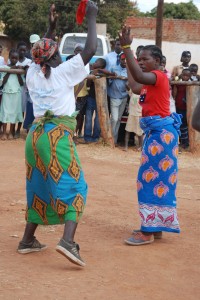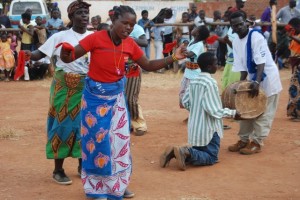by
Mwizenge S. Tembo, Ph. D.
Professor of Sociology
When I was young growing up in the village, one day I rushed home to my parents to report that my brother had insulted and used the worst vile language, kutuka, in Tumbuka against another boy in a quarrel. I repeated the vile disgusting graphic language to my parents word for word to make sure I was reporting accurately. To my utter shock, my parents proceeded to angrily berate me for the report. When my brother who was the guilty party arrived, my parents gave him lighter punishment and milder tongue lashing. What was my mistake? Didn’t I report accurately what had happened? My parents’ response, which was in form of Kulanga, https://www.youtube.com/watch?v=NHz_bMRl2Rc was that my reporting and repeating the actual graphic language was a further degrading and a humiliating insult to them and those listening; it was like adding salt to a wound. Better I should have just said my brother had insulted someone very badly without repeating the vulgar language.
A few years ago when Rupiah Banda was President, the medical doctors had a dispute with the government over low or poor pay. The doctors went on strike. This caused so much disruption in the normal operation and services of the hospitals that somehow a pregnant woman had to give birth in the middle of the street. A Zambian who had a digital camera took the graphic picture of the woman giving birth and went ahead and posted it on the internet media. The person argued that this was freedom of the press, transparency and showed how the government of President Rupiah Banda was mishandling the case of the striking doctors. If you think everything and anything should be posted on line because it promotes transparency, democracy, and shows freedom of the press, you should stop here and not read the rest. You might not like what will be said next as it follows the tradition of Kulanga. I will not describe the stories in graphic detail or show you where you can see the pictures according to the wisdom of my elders.
There have been two controversial media stories in the Zambian press recently. The first one was a young Zambian folk musician who apparently riled the Ngoni Royal Establishment (NRE) because the musician is shown in a photo pulling the nipple of a bare-breasted old Ngoni woman at the Ncwala ceremony. The musician is his defense said he was practicing “chimbuya” with the old woman. Another story was yet a second photo from the same ceremony where another young man is holding the bare-breast of a woman. One thing should be made clear. This author is not against both young and older women being bare-breasted at these ceremonies. The beauty of the human body and its expression should be celebrated according to the appropriate rules of conduct in our culture. This is something that I totally support and am very passionate about. But there is nowhere in traditional Zambian history and the present where the culture says any man has the right to openly grab any woman’s bare-breast during these ceremonies. Our culture never encouraged degrading sexual exhibitionism in public.

Women dancing the Kioda at the annual Agricultural Show in Lundazi in the Eastern Province in July 2007.
What is probably more important is that all the Zambian media that published the humiliating photos should have the primary blame. If you are a credible Zambian media, the Editors should not have published the particular photos in question. Because they have zero redeeming value and only serve to humiliate and embarrass all of us Zambians to ourselves and because of the viral nature of internet technology, the whole world might have seen the photos.
The second person to blame are the photographers and especially if you are a private individual with a personal cell phone camera. You might even enjoy and be excited about taking selfies. All photographers should have a moral campus. Just because something is happening it does not mean you should photograph it or post it on the internet. I know what I am saying goes against the tsunami that is the digital generation because I will probably be thought as a prude, a fontini, too conservative, tin pot dictator, or living in the old or dinosaur past. I have digital cameras and have been taking thousands of photos since 1967. It is not about taking away your freedom of expression but it is learning about making good judgment about public moral integrity and dignity. There is no freedom without dignity and responsibility anywhere in the world. If you believe this freedom without any controls, it is a myth. Think about the hurt and degrading feelings of the victims, especially of the old woman who appeared in the photo and public pain her family and relatives have felt. Those photos will never be taken back from the internet.
As a nation we may have a need to have a conversation about this matter in the light of the digital age technology and millions of younger Zambian audience who attend these ceremonies where people and especially girls and women may be celebrating bare-breasted enjoying and expressing our culture. There might be slaughtering of animals and other graphic rituals that may be part of the ceremonies.
This is a message to all the Royal Establishments of the many wonderful Zambian traditional ceremonies: Chibwela Kumushi, Kulamba Kubwalo in the Central Province, Kulamba, Ncwala, Vinkhakanimba in the Eastern Province, Umutomboko in the Luapula Province, Chibwela Kumushi in the Lusaka Province, Ukusefya Pa Ng’wena in the Northern Province, Likumbi Lyamize in the North Western Province, Lwiindi, Shimunenga in the Southern Province, and Kathanga, Kuomboka in the Western Province. All the Royal Establishments should consult with their subjects, the public, Members of Parliament and the President to establish the rules of conduct to be followed by all ceremony goers and participants. If a ceremony goer happens to take a risky or embarrassing private photo, let it remain private. There should be an orientation and dissemination of lessons for all participants before they go to the ceremony so that they will know how to behave and conduct themselves.
